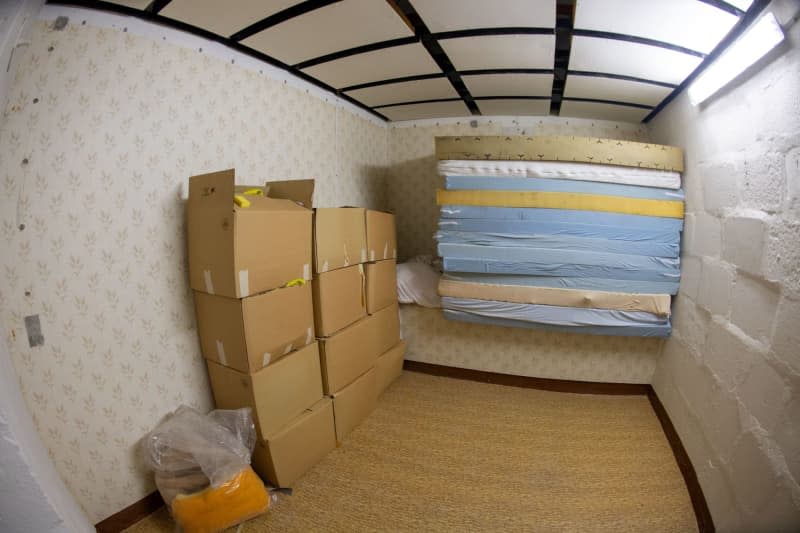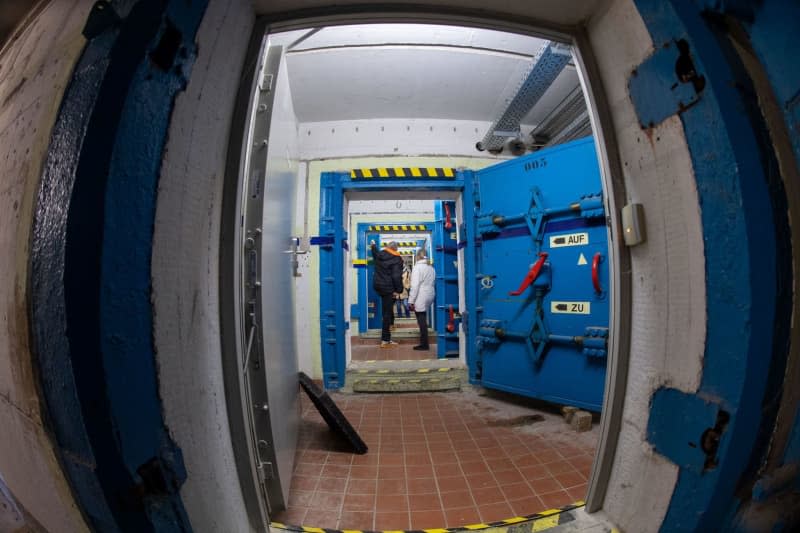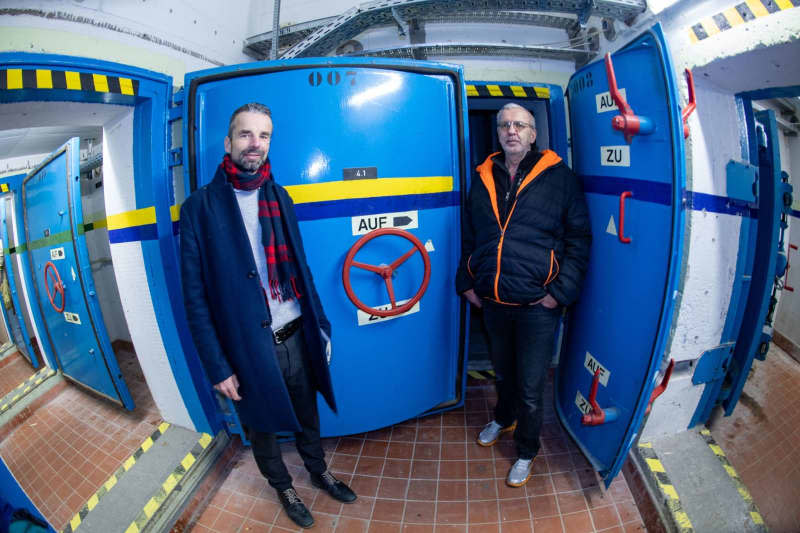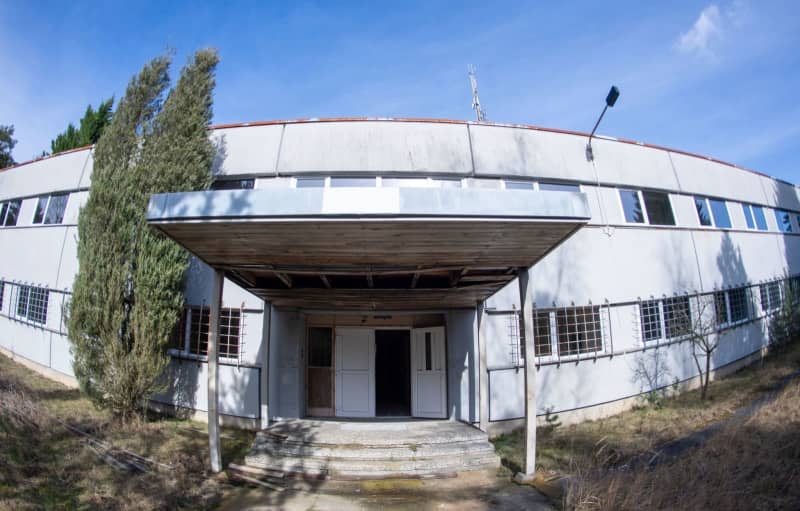Remote former East German bunker for sale. Who's buying?

It's not a lakeside villa or a downtown condominium - it's an unassuming property nestled in a forest near Pasewalk, a German town west of the Polish border, that Heinz Fuhrmann wants to sell for €1 million ($1.07 million).
Behind this seemingly inconspicuous property - or rather underneath it - lies a bunker from the former East Germany era, which was reportedly built in the 1980s.
It's also been called a nuclear bunker as it's allegedly capable of withstanding a nuclear blast.
"I had a specialist explain this to me once. The wall and ceiling thicknesses are not that huge, and they don't have to be, because the blast wave goes over it, since we're underground here," says Fuhrmann.
However, even this bunker would not withstand a "direct hit," Fuhrmann says, opening a blue shed door on the site. He then descends a staircase into an underground passageway where there is an airlock consisting of several doors.
"This door is supposedly eight tons because it definitely contains lead," he says. "You'll be surprised how extensive it all is here," he says as he swings one of the lead doors open with a hefty blow.
Fuhrmann bought the property about four years ago, initially planning to rent the property to the prepper scene - people who prepare for disasters.
Fear of war has been growing in Europe ever since Russia launched its full-scale invasion of Ukraine in 2022, and that has driven a surge in interest in bunkers like these.
But many European governments sold off state-owned facilities or allowed them to fall into disrepair after the end of the Cold War. And Germany, among other countries, had never had enough bunkers for the whole population.
The history of the Pasewalk site is unclear, with one rumour suggesting the office building was once a post office.
The Stasi, communist East Germany's notorious Ministry of State Security, is also rumoured to have been here once, says Fuhrmann.
The building was crammed full of tape recorders. "So all conversations from the former East Germany that went to the East were tapped here. As a Westerner, I can't quite understand why conversations with friends were tapped, but that's probably how it was," says Fuhrmann, who moved to the region in north-east Germany from Bavaria a few years ago.
The East German state security organs recorded vast amounts of data about citizens, with all institutions involved in mass surveillance.
Fuhrmann was told that the bunker was built for the former East Germany army general Heinz Hoffmann so that he could be brought to safety quickly in the event of a disaster, says Fuhrmann.
According to him, some 35 people could survive in the area for about 60 days. He says that a telecommunications company acquired the property after the reunification of Germany.
Subsequently, it was bought by a firm that planned to produce wood chippings.
Paul Bergner, a German author of a book on Cold War bunkers in which he mentions the one in Pasewalk, describes the facility as one of many buildings.
According to Bergner, the bunker was intended to secure national communication links in the event of a disaster or the outbreak of war. There were several such structures in the former East Germany.
Fuhrmann says he's emotionally attached to the property. Yet he and his wife, Gertraud Tilscher, want to get rid of it. "Neither of us is the youngest anymore," he says.
He admits that he bought the property for considerably less than the current €1 million asking price. However, the 63-year-old does not want to reveal the exact amount of the purchase price.
Real estate agent Cornell Pahlow is to broker the property to a new owner. He has already put other special properties on the market, such as a granary and railway stations.
But the bunker, located in the middle of a wooded area, is a "special property," says Pahlow, who grew up in the region. He is therefore keen to put the bunker to good use and, ideally, create jobs for the region.
Throughout Germany, other bunkers have also been sold, or repurposed as cellars for wine, cheese or storage.
This site would be very suitable as a data centre, says Fuhrmann.




